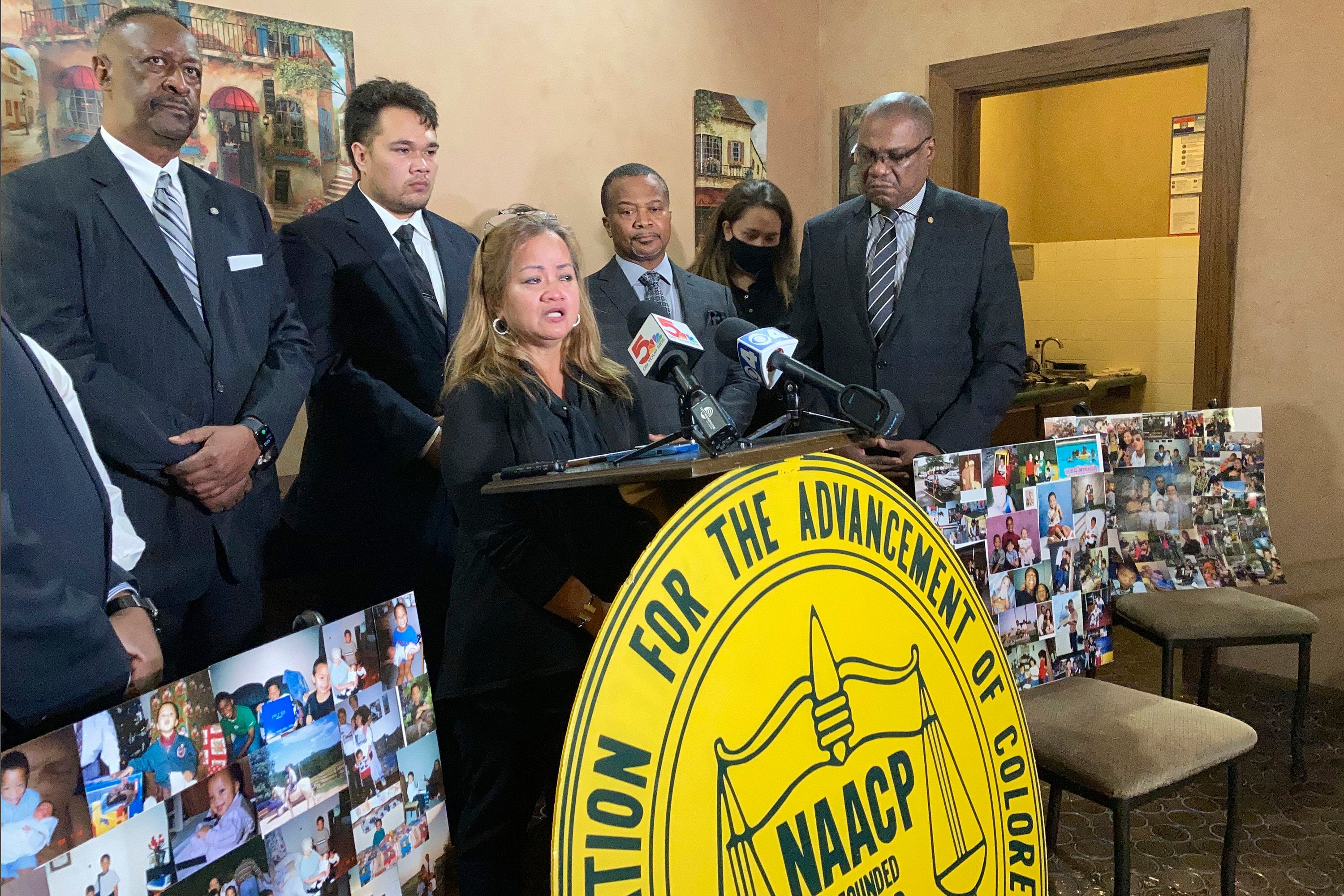Prosecutor: No charges in death of Black Missouri man
A Missouri prosecutor says he will not charge a white man for killing a Black neighbor, agreeing with the finding of a coroner’s inquest that the shooting was justifiable self-defense

Your support helps us to tell the story
From reproductive rights to climate change to Big Tech, The Independent is on the ground when the story is developing. Whether it's investigating the financials of Elon Musk's pro-Trump PAC or producing our latest documentary, 'The A Word', which shines a light on the American women fighting for reproductive rights, we know how important it is to parse out the facts from the messaging.
At such a critical moment in US history, we need reporters on the ground. Your donation allows us to keep sending journalists to speak to both sides of the story.
The Independent is trusted by Americans across the entire political spectrum. And unlike many other quality news outlets, we choose not to lock Americans out of our reporting and analysis with paywalls. We believe quality journalism should be available to everyone, paid for by those who can afford it.
Your support makes all the difference.A Missouri prosecutor said Wednesday that he will not charge a white man for killing a Black neighbor, agreeing with the finding of a coroner's inquest that the shooting was justifiable self-defense.
Crawford County Prosecuting Attorney David S. Smith also provided a statement offering a lengthy explanation of the events that led to the shooting death of Justin King on Nov. 3. King, 28, was killed by a neighbor in a trailer park in Bourbon, Missouri, a town of 1,600 residents about 75 miles (120 kilometers) southwest of St. Louis.
King's family, civil rights leaders and other neighbors have questioned why the shooter wasn't charged. Though investigators initially indicated the shooting appeared to be in self-defense, a coroner's inquest jury was convened Tuesday. The jury’s decision carries no legal weight — it’s still up to the prosecutor to decide on charges.
The six-member jury agreed with the sheriff's department in finding the shooting justified. Missouri NAACP President Nimrod Chapel Jr., who attended the inquest, called the decision disappointing.
Smith said King was initially angered on Nov. 23 when a neighbor accused him of letting her dogs off their chains. Smith said the man who eventually shot King went to King's home to calm him down. King's interior surveillance video and audio showed a “friendly interaction” ending with King saying to the man, “Love you, bro," Smith said.
But about 50 minutes later, King's behavior changed drastically for a reason that even his girlfriend and daughter, who were present, didn't understand, Smith said. King's security video showed King running out of his home, yelling incoherently, Smith said.
The video showed King banging on the man's door, then eventually making his way into his home. Smith said there was no video footage from inside that house, but a struggle spilled outside onto a porch. Smith said the shooter had a gun in his hand and King fell to the ground. He had been shot three times, including a fatal shot to the heart.
The shooter told authorities that inside the house, King had threatened to kill him, threw one TV across the room and damaged another. The man said he grabbed a gun and tried to run away but King caught him, leading to the fatal encounter.
A deputy coroner told the St. Louis Post-Dispatch that King had THC from marijuana, nicotine, caffeine, methamphetamine and amphetamines in his system at the time of his death. She said the level of meth was below the level considered by scientists to cause violent outbursts.
Missouri’s “castle doctrine” law allows for deadly force against intruders.
“The law additionally provides that when upon their private property, a defender has no duty to retreat from the aggressor,” Smith said in the statement. “I fully concur with the finding of the Coroner’s Inquest panel, and I am declining to issue charges related to the death of Mr. King.”
The inquest on Tuesday marked the second coroner’s inquest in six months to examine the suspicious death of a young Black man.
Derontae Martin was 19 when he died in April during a party at the Madison County home of a man with a history of making racist comments and social media postings. Investigators determined Martin killed himself, but a subsequent coroner’s inquest jury found he died by “violence,” not suicide.
One witness said at the July inquest into Martin’s death that the homeowner told him he killed Martin, saying, “he didn’t like Black people.” But another witness said he saw Martin shoot himself.
No charges have been filed in Martin's case and the Madison County prosecutor has not responded to interview requests.